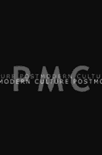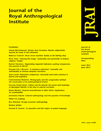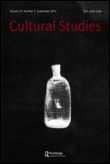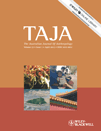
Social Text
Scope & Guideline
Unpacking Social Phenomena Through Rigorous Scholarship
Introduction
Aims and Scopes
- Cultural Critique and Social Theory:
The journal focuses on analyzing and critiquing cultural phenomena, emphasizing how cultural practices intersect with social structures, power dynamics, and historical contexts. - Intersectionality and Identity Politics:
It explores the complexities of identity formation, particularly regarding race, gender, and sexuality, and how these identities inform experiences of oppression and resistance. - Activism and Social Change:
Social Text encourages scholarship that not only critiques but also engages with social movements, promoting perspectives that advocate for justice and transformative action. - Ecological and Urban Studies:
The journal addresses contemporary ecological issues and urban dynamics, exploring how these themes relate to social justice, sustainability, and community resilience. - Art and Aesthetics:
It examines the role of art and aesthetic practices in shaping social consciousness and political discourse, often featuring interdisciplinary approaches that include performance, visual culture, and new media.
Trending and Emerging
- Postcolonial and Decolonial Studies:
There is an increasing emphasis on postcolonial and decolonial frameworks, exploring the legacies of colonialism and the ongoing impacts on marginalized communities, particularly in relation to identity and power. - Climate Justice and Environmental Activism:
Recent papers highlight the intersections of climate change with social justice, advocating for frameworks that address ecological issues through a lens of equity and activism. - Digital Culture and Surveillance:
The exploration of digital technologies, their impact on society, and the implications of surveillance capitalism represent a growing area of interest, reflecting contemporary concerns regarding privacy and data politics. - Abolitionist Politics:
The journal is increasingly publishing work that engages with abolitionist thought, particularly in relation to policing, incarceration, and broader systems of oppression, indicating a shift towards radical reimagining of social institutions. - Trans and Queer Theory:
There is a notable rise in discussions surrounding trans and queer identities, particularly in relation to feminism, social justice, and cultural production, highlighting the need for inclusive and diverse theoretical frameworks.
Declining or Waning
- Traditional Economic Analysis:
Papers that focus solely on conventional economic theories or analyses of capitalism without an intersectional framework have become less frequent, indicating a shift towards more nuanced explorations of economic systems that incorporate social justice. - Historical Revisionism without Contemporary Relevance:
Discussions centered on historical events that do not connect to current social movements or theories are appearing less frequently, suggesting a preference for scholarship that ties past events to contemporary issues. - Narrowly Defined Feminist Frameworks:
While feminist discourse remains vital, there is a noticeable decline in papers that adhere to narrowly defined feminist theories without incorporating intersectional perspectives, as the journal increasingly emphasizes the need for intersectionality in feminist analysis.
Similar Journals

DIALECTICAL ANTHROPOLOGY
Illuminating the Nuances of Dialectical ThoughtDIALECTICAL ANTHROPOLOGY, published by SPRINGER, is a prestigious journal within the field of anthropology, recognized for its substantial contributions to dialectical and critical theory in social research. Since its inception in 1975, the journal has carved a niche by exploring the intersections of culture, society, and politics, making it an essential resource for scholars and practitioners. With an impact factor that places it in the Q2 category for both anthropology and arts and humanities, and significant rankings in sociology and political science, it reflects a solid scholarly reputation. The journal operates on a subscription basis, allowing for a wide dissemination of rigorous academic research without open access. With ISSN 0304-4092 and E-ISSN 1573-0786, DIALECTICAL ANTHROPOLOGY serves as a crucial platform for fostering dialogue and advancing knowledge in contemporary anthropology and related disciplines. As a researcher, professional, or student, engaging with the insights presented in this journal will deepen your understanding of the dynamic interplay between structural and agency-oriented perspectives in social contexts.

Boletin de Arte-UMA
Showcasing Cutting-Edge Research in the ArtsBoletin de Arte-UMA is a distinguished academic journal published by the University of Malaga, Department of History of Art, focusing on the rich interplay between history, visual arts, and performing arts. Operating under an Open Access model since 2013, this journal ensures that valuable research is freely available for scholars and practitioners worldwide. With an impact factor currently reflecting its academic rigor through its Q2 ranking in History and Q1 ranking in Visual Arts and Performing Arts, Boletin de Arte-UMA serves as a vital platform for cutting-edge research, critical analysis, and the promotion of cultural heritage studies. Based in Malaga, Spain, the journal not only provides insights into its thematic scope but also fosters a global dialogue among researchers, professionals, and students passionate about the visual and performing arts.

POSTMODERN CULTURE
Navigating the Nuances of Modern DiscoursePOSTMODERN CULTURE, published by Johns Hopkins University Press, is a pivotal journal in the fields of Cultural Studies, Literature and Literary Theory, and the Visual Arts and Performing Arts. With a focus on the nuances of postmodern theory and its interdisciplinary applications, the journal has established itself as an essential resource for researchers and scholars seeking to explore contemporary cultural phenomena through innovative critical lenses. Compiling works from 2002 to 2023, it is indexed with notable rankings, including Q2 in Literature and Literary Theory and Q3 in Cultural Studies, reflecting its significant contribution to persistent academic discourse. While not open access, the journal ensures that access to groundbreaking research is available to libraries and institutions, reinforcing its importance in the scholarly community. POSTMODERN CULTURE serves not only as a repository of academic inquiry but also as a catalyst for new ideas, stimulating dialogue among professionals and students alike in understanding the complexities of today's cultural landscape.

REPRESENTATIONS
Challenging Norms, Shaping FuturesREPRESENTATIONS, published by University of California Press, is a prominent academic journal that has made significant contributions to the fields of Arts and Humanities, Cultural Studies, Gender Studies, and Sociology and Political Science since its inception in 1983. With an ISSN of 0734-6018 and E-ISSN of 1533-855X, REPRESENTATIONS is recognized for its rigorous scholarship and critical discourse, currently positioned in Q2 within its primary categories and holding respectable ranks in Scopus, reflecting its influence and relevance in contemporary academic conversations. Designed for a diverse audience including researchers, educators, and students, this journal facilitates an interdisciplinary dialogue that addresses pressing societal issues through various scholarly lenses. While not openly accessible, its articles are invaluable for those seeking in-depth analysis and innovative perspectives. For continued engagement with critical scholarship through 2024 and beyond, REPRESENTATIONS serves as an essential platform for enriching the discourse surrounding cultural and social inquiries.

Virajes-Revista de Antropologia y Sociologia
Fostering Critical Dialogues on Contemporary IssuesVirajes-Revista de Antropologia y Sociologia, published by UNIV CALDAS, is a premier open-access journal that has been at the forefront of anthropological and sociological research since its inception in 2008. With the ISSN 0123-4471 and the E-ISSN 2462-9782, this journal offers a unique platform for scholars and practitioners to disseminate high-quality research that contributes to the understanding of social dynamics and cultural phenomena, particularly in the Latin American context. The journal seeks to foster an interdisciplinary approach, bridging theoretical and empirical research, and encouraging critical dialogues on contemporary issues in anthropology and sociology. By providing open access, Virajes ensures that its valuable content is available to a global audience, thus enhancing knowledge dissemination and engagement within the academic community. With its commitment to excellence and accessibility, Virajes stands as an essential resource for researchers, professionals, and students committed to exploring the complexities of human societies.

Pensamiento al Margen
Navigating contemporary challenges through academic insight.Pensamiento al Margen, a vibrant academic journal based in Murcia, Spain, has been a significant contributor to the field of social sciences and cultural studies since its inception. With an ISSN of 2386-6098 and operating as an Open Access platform since 2014, it ensures that academic discourse is accessible to a broader audience, facilitating the free exchange of ideas among researchers, professionals, and students. Published by PENSAMIENTO AL MARGEN, this journal aims to foster interdisciplinary dialogue while addressing contemporary issues and challenges in society. Through its commitment to quality and innovation in research, Pensamiento al Margen stands out as a preferred venue for scholars looking to disseminate impactful findings and engage with pressing themes in the academic landscape. Join the community of thought leaders by contributing or accessing this essential resource in scholarly communication.

JOURNAL OF THE ROYAL ANTHROPOLOGICAL INSTITUTE
Championing Rigorous Inquiry in AnthropologyJOURNAL OF THE ROYAL ANTHROPOLOGICAL INSTITUTE, published by Wiley, stands as a prestigious platform for scholarly discourse in the field of anthropology. With an ISSN of 1359-0987 and an E-ISSN of 1467-9655, this journal has been a vital resource for researchers, professionals, and students since its inception, featuring contributions that push the boundaries of understanding in both cultural and social anthropology. The journal’s rigorous peer-review process affirms its high academic standards, reflected in its top-tier Q1 rankings in both the Anthropology and Arts and Humanities categories for 2023. With a current ranking of #78 out of 502 in Social Sciences Anthropology and #138 out of 552 in Miscellaneous Arts and Humanities, it inhabits a critical space within academia, addressing seminal issues and innovative research. While the journal is not open access, it remains accessible to those affiliated with institutions that provide subscriptions, ensuring that groundbreaking anthropological insights are disseminated widely within the academic community. As it converges from 1995 to the present, the JOURNAL OF THE ROYAL ANTHROPOLOGICAL INSTITUTE continues to shape the landscape of anthropological research, engaging a diverse readership eager to explore the intricate tapestry of human cultures.

CULTURAL STUDIES
Fostering Dialogue on Culture and SocietyCULTURAL STUDIES, published by Routledge Journals, Taylor & Francis Ltd, is a prestigious academic journal dedicated to the exploration and analysis of cultural phenomena across diverse contexts. With an ISSN of 0950-2386 and an E-ISSN of 1466-4348, this journal has established itself as a leading platform for scholars, researchers, and practitioners interested in the intersections of culture, identity, and society. Since its inception, CULTURAL STUDIES has transitioned through several converged years of publication, currently producing cutting-edge research that reflects its strong positions in Q1 quartiles across multiple disciplines, including Anthropology, Social Sciences, and Arts and Humanities. With an impressive Scopus rank of 75/1304 in Cultural Studies, the journal is an essential resource for those seeking to engage with the latest theoretical frameworks and methodologies in understanding cultural dynamics. Although it is not currently open access, CULTURAL STUDIES remains a critical vessel for disseminating knowledge that impacts both academic and practical applications in cultural analysis. For scholars and students eager to contribute to this vibrant field, the journal serves not only as a repository of knowledge but also as an inspiration for further inquiry into the complexities of culture.

Australian Journal of Anthropology
Exploring Cultures, Shaping PerspectivesThe Australian Journal of Anthropology, published by Wiley, stands as a pivotal resource in the field of anthropology, reflecting a deep commitment to advancing scholarly discourse since its inception in 1990. With an ISSN of 1035-8811 and E-ISSN 1757-6547, this journal provides a platform for innovative research and critical analysis, contributing to the global anthropology community. Based in the United States, at 111 River St, Hoboken, NJ, it has established itself in the Q3 category of anthropology journals, ranking #162 out of 502 in Scopus, placing it in the 67th percentile among its peers. While it is not currently an open-access publication, the journal remains dedicated to accessibility through institutional subscriptions and provides a wealth of insight into anthropological methods and cultural studies. It seeks to foster interdisciplinary dialogue and promote a comprehensive understanding of social dynamics, making it an essential read for researchers, professionals, and students eager to enrich their knowledge and engage with contemporary anthropological issues.

Insan & Toplum-The Journal of Humanity & Society
Advancing interdisciplinary dialogue in the humanities and social sciences.Insan & Toplum - The Journal of Humanity & Society, published by ILEM, is a prominent open access journal dedicated to advancing the fields of social sciences and humanities. Since its inception in 2011, this journal has provided a platform for interdisciplinary research that addresses critical social issues, cultural dynamics, and philosophical inquiries, fostering a rich dialogue among scholars, practitioners, and students worldwide. The journal aims to disseminate high-quality research findings and innovative perspectives that reflect the complexities of human society, facilitating a deeper understanding of contemporary challenges. With its commitment to open access, Insan & Toplum ensures that knowledge is freely available to all, thus promoting wider engagement and discourse in its areas of focus. Featured on various academic databases, this journal is recognized for its scholarly contributions and continues to play an essential role in enriching the dialogue in the humanities and social sciences.